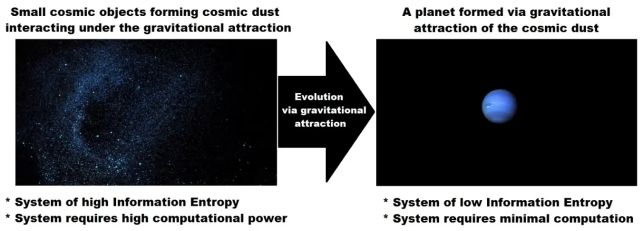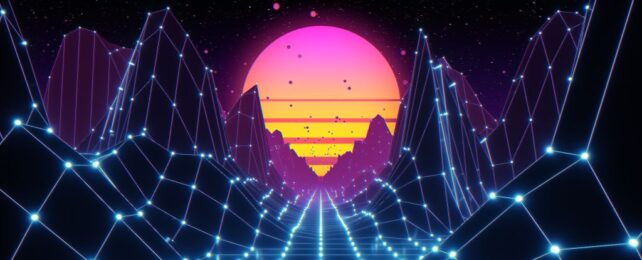If we were living in a computer simulation, would we be able to tell we were living in a computer simulation? It's a question that's difficult to answer, but physicist Melvin Vopson of the University of Portsmouth in the UK believes that he may have found a clue.
According to his latest study, gravity could be a product of computational processes within the Universe, a by-product of the Universe's attempt to keep information and matter neatly organized in space and time.
"My findings in this study fit with the thought that the Universe might work like a giant computer, or our reality is a simulated construct," Vopson says.
"Just like computers try to save space and run more efficiently, the Universe might be doing the same. It's a new way to think about gravity – not just as a pull, but as something that happens when the Universe is trying to stay organized."

Whether or not we live in a simulation functionally changes nothing about our lives or existence. But trying to peel back the edges of our reality to see where its behavior might overlap with that of a simulation can teach us things about the nature of the Universe we live in.
Vopson has been pursuing this line of enquiry for several years, poking and prodding to see what emerged. In 2022, he and his colleague, mathematician Serban Lepadatu from the Jeremiah Horrocks Institute for Mathematics, Physics and Astronomy in the UK, came up with what they call the second law of infodynamics, a framework for understanding the simulation-like behavior of the Universe.
This framework is based on the second law of thermodynamics, which states that any naturally occurring process in the Universe will result in a loss of usable energy and an increase in a system's measure of disorder, or entropy. The second law of infodynamics, by contrast, requires 'information entropy' to either remain at the same level, or even decrease over time.
Vopson's research has also investigated the notion that information has mass, and therefore may be considered a state of matter, and calculated the amount of information in the Universe if we consider elementary particles to be data storage units similar to DNA.
These elementary particles, according to particle physics, are the smallest possible units of matter in the Universe, like the bits that are the smallest units of digital information. And these particles, Vopson posits, can be organized into pixels, or cell-like divisions in space-time that, like a bit, can register as a 1 or 0 – in this case, depending on whether or not that pixel contains matter.
Gravity, according to Vopson's new paper, can be taken as an indicator of the pixellation of matter distribution in the Universe. When multiple particles end up in the same pixel, they coalesce, so that each pixel contains only one "object," Vopson lays out.

A diagram illustrating the way gravity optimizes the Universe, according to Vopson. (The University of Portsmouth)"This triggers the attracting force because of the rule set in the computational system, requiring the minimization of the information content, and by extension, a reduction of the computational power," he explains.
"Put simply, it is far more computationally effective to track and compute the location and momentum of a single object in space, than numerous objects. Therefore, it appears that the gravitational attraction is just another optimizing mechanism in a computational process that has the role to compress information."
So, in this analogy, the pixel is the ZIP file, and gravity is the compressing force that optimizes the amount of space it takes up.
This is even more compelling when you consider that, for all its ubiquity throughout the Universe, we don't really know what gravity is, or even why it is. We can measure it, but we don't understand its nature.
By considering gravity under different frameworks – for example, as the Universe's means of computational optimization – we might be able to find more answers than we could by only looking at general relativity or quantum mechanics.
"Whether the Universe is indeed a computational construct remains an open question, but the entropic nature of gravity provides compelling evidence that information is a fundamental component of physical reality and data compression drives physical processes in the Universe," Vopson writes in his paper.
"Future research should focus on refining this framework, exploring its applicability in relativistic and quantum gravitational contexts, and investigating possible experimental validations."
The paper has been published in AIP Advances.
